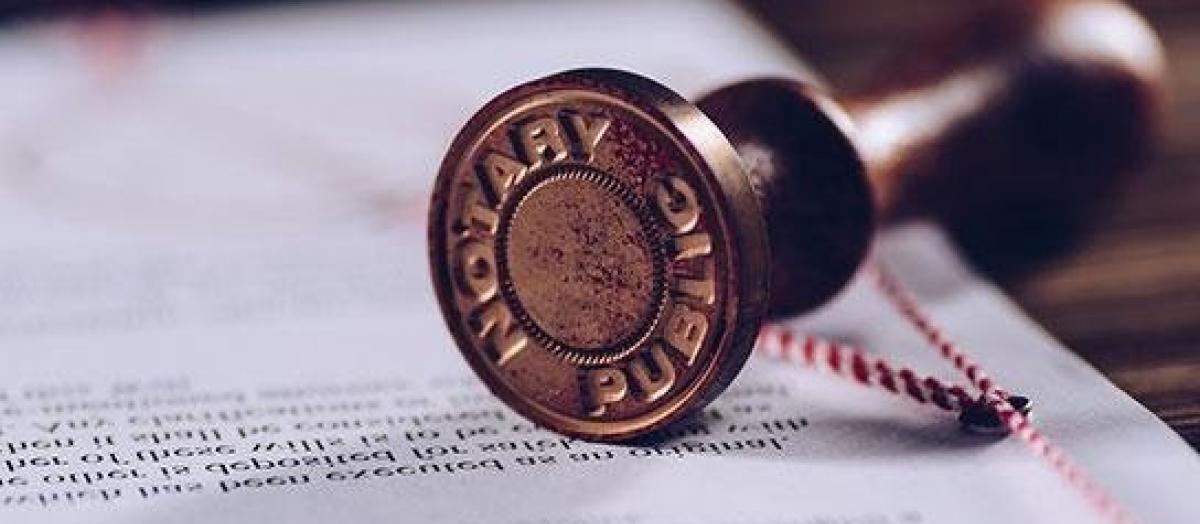Notary Public: Your Trusted Witness and Paper Authenticator
Notary Public: Your Trusted Witness and Paper Authenticator
Blog Article
Debunking Notarial Work: Streamlining the Role and Value of Notaries
In the intricate web of legal documents and verification, notaries stand as columns of assurance and authenticity. Their function, often shrouded in mystery for several, lugs significant weight in guaranteeing the legitimacy and stability of important documents. As guardians of legality and truth, notaries play a crucial component in our society, yet their work is not constantly totally comprehended. By untangling the intricacies losing and bordering notarial techniques light on the significance of their acts, a clearer understanding emerges of the vital role notaries play in promoting the textile of legal and legal agreements.
The History of Notarial Job
Exactly how did notarial job advance over time to become an essential component of lawful and service transactions? The background of notarial work go back to ancient human beings, where scribes played a crucial function in tape-recording important info and validating documents. As cultures progressed, the requirement for a more formalized system to make sure the validity of contracts emerged. This caused the growth of notaries, people appointed by the state to function as neutral witnesses in lawful issues.
During the Middle Ages, notaries gained prestige in Europe, with their features increasing to consist of drafting lawful papers, certifying trademarks, and preserving records. The surge of global trade additionally highlighted the importance of notarial work in confirming contracts and contracts throughout boundaries.
In the modern age, notaries proceed to play an essential duty in lawful and service purchases by validating identifications, confirming the credibility of files, and preventing fraudulence. Their function in licensing the legitimacy of agreements adds a layer of protection and depend the ever-evolving landscape of commerce and law.

Responsibilities and Responsibilities of Notaries
The historical development of notarial job from ancient civilizations to the modern-day era has formed the unique duties and duties that notaries promote in lawful and company purchases today. Notaries play an essential function in verifying the credibility of files and the identity of signatures. One of their main obligations is to witness the finalizing of essential files, such as deeds, contracts, and wills, to make sure that all celebrations are participating in contracts purposefully and willingly. Notaries additionally verify that notaries are of audio mind and not under duress or browbeating.
They license copies of original documents, providing assurance to institutions that the copies are true reproductions of the originals. Overall, the duties and responsibilities of notaries are crucial in protecting the integrity and legality of numerous documents and transactions - DIRCO.
Notarial Certificates and Signatures
Exemplifying precise focus to information, notarial certificates and trademarks act as essential components in confirming the credibility of legal documents. Notarial certifications commonly consist of crucial information such as the day of registration, the names of the signatories, a description of the document, and the notary's main seal. These certifications offer a clear document of the notarial act, making certain that the document wikipedia reference can be easily recognized and mapped back to the notary that looked after the procedure.
Signatures play a critical role in notarial work, as they indicate the contract and consent of the parties entailed. check that Notaries thoroughly witness the signing of documents to validate the identity of the signatures and verify that they are signing of their own free choice. By attaching their main seal and signature to the record, notaries accredit that the necessary procedures have been adhered to and that the paper is enforceable and legitimate.
In essence, notarial certifications and signatures are the hallmark of credibility in lawful transactions, offering guarantee to all parties included that the documents are reputable and binding.
Significance of Notarial Acts

Notarization Process Described
Explaining the notarization process supplies quality on the vital steps associated with confirming lawful files. The registration procedure typically starts with the private providing the file to a notary public. The notary after that confirms the endorser's identification through acceptable my sources identification techniques. When the identity is verified, the notary makes certain that the private authorizing the paper does so voluntarily and with no threat.

Conclusion

Notarial certificates commonly have vital details such as the date of notarization, the names of the notaries, a summary of the paper, and the notary's main seal. These certificates provide a clear document of the notarial act, ensuring that the document can be easily recognized and mapped back to the notary that managed the process.
By affixing their main seal and signature to the document, notaries license that the necessary procedures have been followed and that the paper is enforceable and valid.
By confirming the identity of the signatories, verifying their desire to get in right into the arrangement, and licensing the date and location of the signing, notaries play a crucial role in promoting the validity of legal papers.After the document is signed, the notary will attach their main seal or stamp onto the record.
Report this page